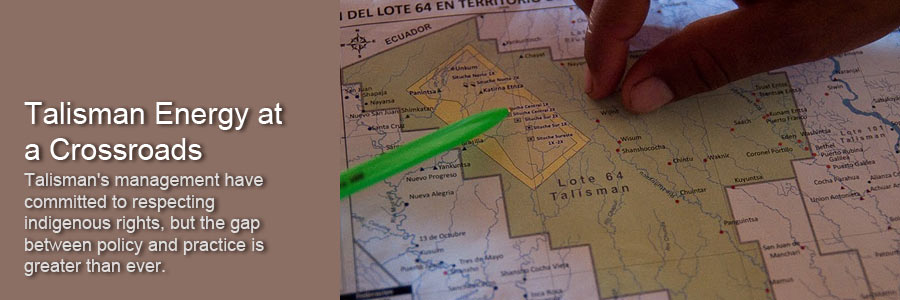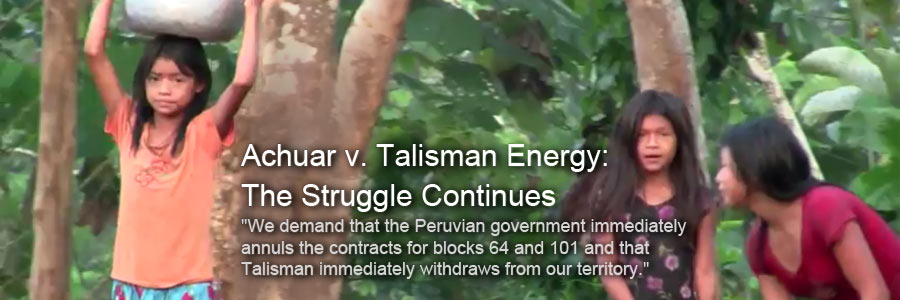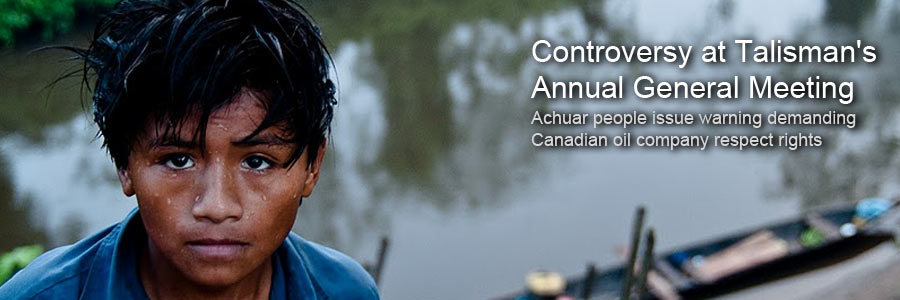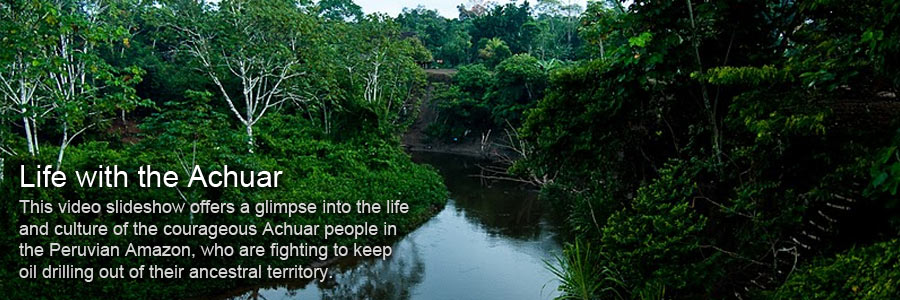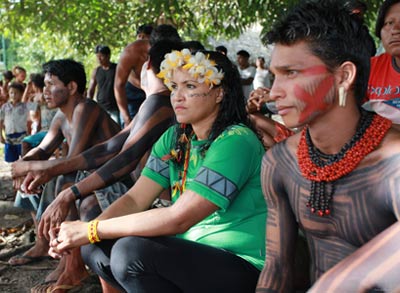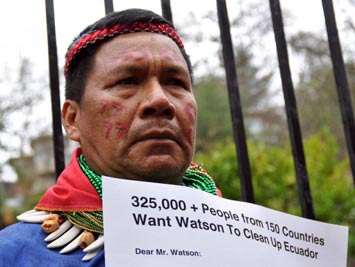Talisman Energy in Achuar Territory
From time immemorial, the Achuar indigenous people of the Amazon rainforest in northern Peru have lived in harmony with their natural environment. Their homeland contains some of the highest biodiversity on Earth. Well into the twentieth century, the Achuar practiced their traditional way of life, relatively isolated from the rest of Peruvian society. Still today, more than 11,000 Achuar live in the Peruvian Amazon along the Corrientes, Pastaza, and Morona Rivers. It can take up to a week by bus or canoe to reach this remote region from the capitol city of Lima, and traveling between villages on foot often takes days.
Achuar lands sit atop oil fields, although they are relatively marginal in terms of the quality and accessibility of the reserves. However, successive oil companies – first US-based Occidental Petroleum (Oxy) and now Argentina's Pluspetrol – have been pumping oil in the concession known as Block 1-AB since the early 1970's. Until very recently, flagrant pollution has been the norm. Oxy's legacy of harm continues to be felt: their reckless operations dumped approximately 9 billion barrels of "produced waters" – which contain highly toxic substances such as barium, lead and arsenic – throughout 30 years of operations (averaging 850,000 barrels per day).
The companies polluted for decades, lowering their production costs and maximizing return for their shareholders. Local people, however, have paid the costs. Adults and local children have tested positive for dangerously high blood-lead levels; and local residents cite countless tales of unexplained diseases, tumors, skin ailments and miscarriages from oil exposure. Due to oil contamination, fish and local game are not fit for consumption, nor is the soil fit for the agricultural crops on which the Achuar depend for subsistence.
In response, the Achuar have mobilized through peaceful means, forcing Pluspetrol to end the practice of dumping "produced waters," and have filed a class action lawsuit against Occidental Petroleum in U.S. Yet the Achuar face increasing threats from Big Oil. Calgary-based Talisman Energy, alongside other Canadian oil companies, has entered this conflict. Arriving in Peru in 2004, Talisman has steadily expanded its operations. As of 2010, the company holds 100 percent interest in Block 101 and Block 64 (recently acquired from Occidental Petroleum). These two blocks cover roughly 4 million acres (1.7 million hectares) of pristine tropical rainforest and overlap the Morona and Pastaza river basins.
Blocks 101 and 64 also overlap the Pastaza Alluvial Fan, an enormous wetlands area, classified as a site of international importance under the RAMSAR Convention. Dozens of species of animals listed in the Convention on International Trade in Endangered Species are found in these wetlands, along with 17 species on the International Union of Concerned Scientists' "Red List of Threatened Species". The cumulative impact of oil activities in the coming years would likely contribute to the extinction of some of these species and a loss of precious biodiversity.
Given the Achuar's experience with Oxy, the majority of communities within Block 64 have adopted a steadfast opposition to any new oil activities on their lands. In March of 2010, at an official Assembly, elders and leaders of the Achuar released a public statement demanding that Talisman leave.
